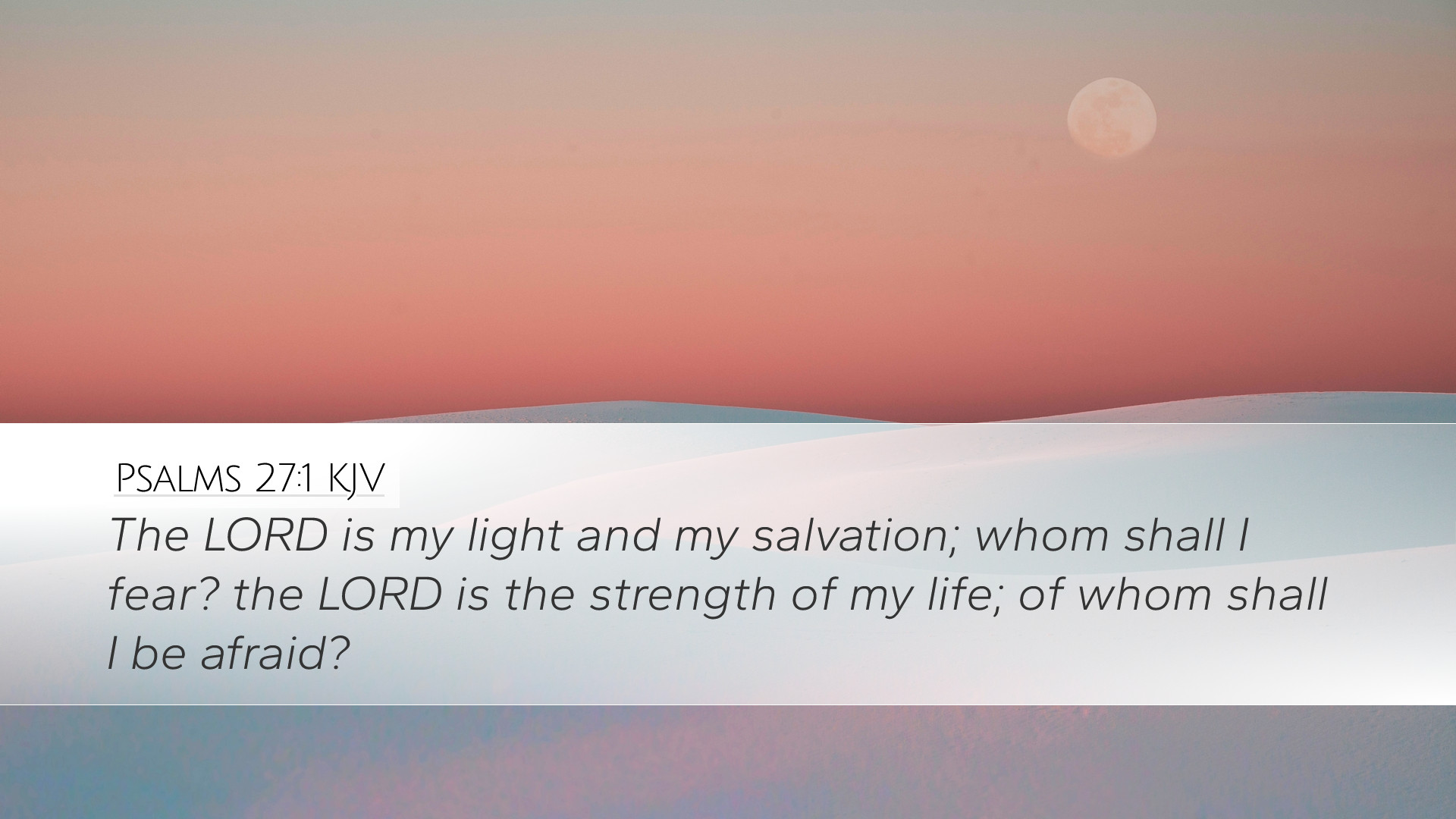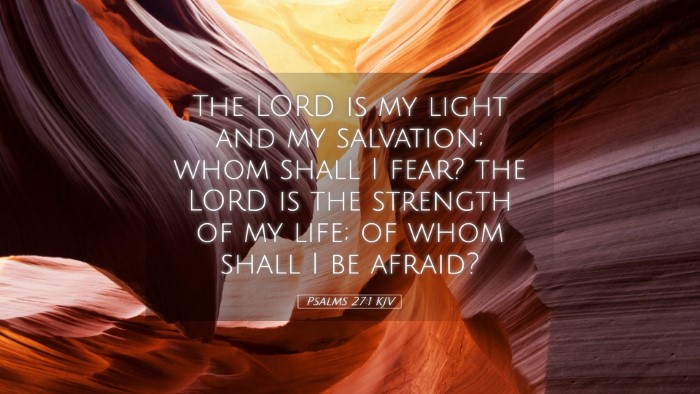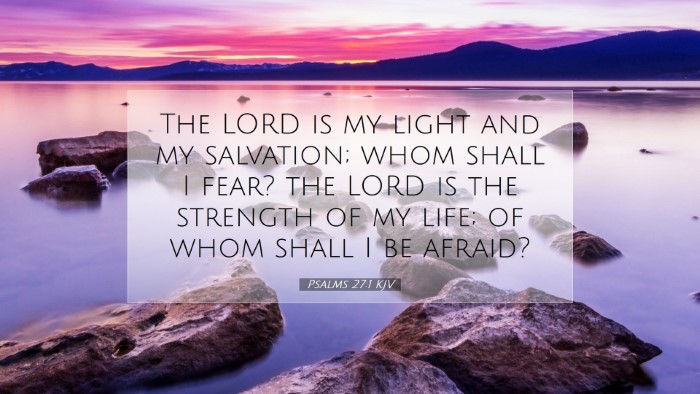Psalms 27:1 - A Commentary
Verse: "The LORD is my light and my salvation; whom shall I fear? the LORD is the strength of my life; of whom shall I be afraid?"
Introduction
This verse stands as a profound declaration of faith and reassurance for believers. The Psalmist, likely David, articulates a deep conviction about God's role in his life—both as a source of illumination and as a fortress of strength. Understanding this verse requires a holistic approach, drawing insights from various public domain commentaries to enrich our theological interpretation.
Divine Light
Matthew Henry describes the concept of God as light as a source of guidance and enlightenment in the believer's life. Light dispels darkness and brings clarity; it signifies knowledge, divine presence, and holiness. In context, the Psalmist is stressing that in God, who provides light, there is no cause for fear.
Albert Barnes further emphasizes that light is emblematic of God’s favor and truth. It is through this divine light that believers are able to discern and navigate the challenges of life. The emphasis on “my light” indicates a personal relationship; it is not just a general attribute of God but a specific assurance to the Psalmist.
Salvation and Fearlessness
The terms "salvation" and "whom shall I fear?" suggest an inherent connection between deliverance and the absence of fear. Adam Clarke points out that the term "salvation" encompasses not only spiritual redemption but also physical preservation from enemies. It reflects the totality of God’s saving grace in every aspect of life.
In light of this, the rhetorical question posed—“whom shall I fear?”—serves as a powerful philosophical and theological assertion. By recognizing God as his savior, David concludes that no external threat can truly intimidate him. His confidence is deeply rooted in the character of God.
The Strength of My Life
The phrase “the LORD is the strength of my life” brings to focus the concept of divine empowerment. Matthew Henry notes that this strength is not merely physical but encompasses emotional and spiritual fortitude. It paints a picture of reliance on God, who provides sustenance in every trial.
Albert Barnes adds to this by suggesting that strength from God facilitates courage in the face of adversity. The Psalmist acknowledges that true security comes from a relationship with God rather than ephemeral human resources or alliances.
Theological Implications
This single verse encapsulates key themes of salvation, divine presence, and fearlessness, which are central to the biblical narrative. Observing the structure of the verse, Adam Clarke suggests that it represents theology in motion; it encourages believers to move from a place of fear to a state of assurance through the knowledge of God’s attributes.
- Assurance of Salvation: Believers can take heart in the assurance that their salvation is secure through their relationship with God.
- Understanding Fear: Acknowledging God’s supremacy allows believers to confront and dismantle irrational fears.
- Strength in Weakness: The Psalmist's declaration is a reminder that human limitations are overcome in God’s strength.
Practical Applications
This verse serves as a profound source of encouragement for pastors, students, theologians, and Bible scholars alike. In pastoral contexts, it can be a foundation for sermons focused on God’s character as a protector and guide.
For students and laypersons, this verse can be memorized as a reminder of God’s unwavering support, particularly in times of indecision or turmoil. The phrase “whom shall I fear” can be a mantra that instills confidence when faced with life’s uncertainties.
Theologians may delve deeper into the implications of God as light and strength, exploring the existential dimensions of faith and the human condition concerning divine assurance.
Conclusion
In conclusion, Psalms 27:1 encapsulates the essence of a believer's faith journey. It underscores the relationship between the divine and humanity, offering hope and strength amid life's challenges. By meditating on this verse and the insights gleaned from authoritative commentaries, individuals can bolster their understanding and build a robust faith rooted in the love and power of God.


